Some porcelain tiles manufacturers and dealers are destined to become the best ceramic industry brand, despite the fact that there is no scarcity of tile firms around the globe. There are various modest artisan tile firms, each of which manufactures tiles that are entirely distinctive and one of a kind.
Even though these tiles will surely change your bathroom or kitchen into a one-of-a-kind display, it may be tough to get your hands on many of these tiles. On the opposite end of the scale are enormous tile enterprises, the items of which may be identified and acquired with as little effort as a short trip to your neighborhood hardware or home improvement store.
These tiles are often significantly cheaper than those manufactured by artisan makers; however, they may also be basic or uninteresting in design. These organizations all hit the objective when it comes to establishing a balance between quality, cost, and ease of purchase, which is a prerequisite for any list of the best tile companies and brands.
Although there is no lack of tiling firms around the globe, not every company activity is meant to be successful. While some businesses have gone from a meager beginning to a prosperous present after experiencing their fair share of adversity, others have already begun positioning themselves to assume a prominent role in their respective industries.
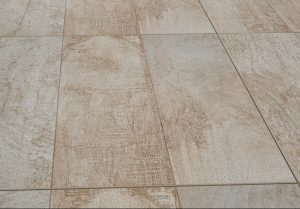
Tile manufacturers list
We’ve compiled a list of the top five tile manufacturers that have made a name for themselves not just in their own nation, but also on a global scale. These firms have not only had profit parts to bite on, but they have also proved time and again that their business and manufacturing activities are in agreement with environmental sustainability, employee joy, and consumer happiness.
Mohawk Industries, Inc. is ranked 1 among the top ten tile firms in the world. Mohawk Industries forecasts worldwide sales of more than 10 billion dollars in 2020, with an annual manufacturing capacity of more than 250 million square meters of tiles and an ambitious expansion plan throughout Europe.
In approximately the previous three decades, the business has expanded to the point where it can create over 120 million square meters of tile and 5 million pieces of sanitary ware per year. Grupo Cedasa is another contributor to the world’s top 10 tile firms. The Pascon family established it in 1990. Within 10 years, the Cedasa Group has climbed to new heights as the largest and most modern tile industry in Latin America.
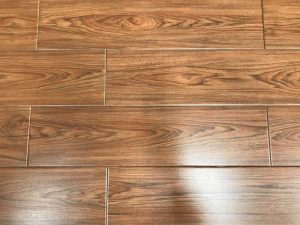
Ceramic tile brands
The ceramic tile industry is a good one to enter since the demand for ceramic tiles is often high. Several ceramic tile brands are constantly producing floor tiles, wall tiles, tabletops, and countertops as they are often used in the construction sector and are available in a range of forms and sizes.
They certainly increase the beauty and value of any house or building. Wall and floor tiles are popular among homeowners and builders due to their durability and low maintenance requirements. A company is profitable when its revenue-generating potential surpasses its expenses; the same holds true for the trade of ceramic tiles.
Even for a strong start in today’s market, a showroom and warehouse require a substantial amount of space, and rents are exorbitant. Therefore, it is preferable to possess your own land because rentals consume a significant percentage of your income. These businesses require sales, warehouse loading and unloading, marketing, and accounting professionals.
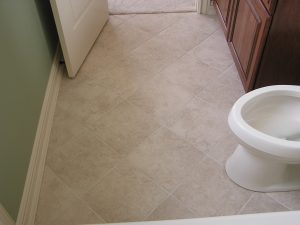
High end tile brands
As the popularity of a high end tile rises, a wide range of products from different brands is available. Tiles resembling natural materials, such as marble, granite, and cement, are in high demand. In terms of installation, cost, and other factors, these tiles have a significant advantage over real marbles or granites.
Determine what type of tile you need as a first step. If you’re considering replacing your floor, for instance, you may want to use vitrified tiles since they’re more robust, have remarkable durability, are easy to maintain, and are excellent for high-traffic areas.
Because ceramic and porcelain tiles are impermeable and resistant to stains, they are the most popular choice for wall tiling. The position of your tiling is pretty essential. In the absence of strong foot traffic and bad weather, ceramic and porcelain tiles may be utilized as floor tiles.
In the same manner, vitrified can be helpful for walls. In the end, it all boils down to your creative intuition and a small amount of research and analysis. Choose a finish that appeals to you, but ensure that it is suitable for the space. There are matte, glossy, stone, and ultra-glossy finishes available for typical tile surfaces.
It is crucial to pick a suitable finish for your space. If you’re considering tiling your outdoor space, you may want to use a stone finish as opposed to a glossy or excessively sparkly material. In many ways, tile production is an artistic endeavor, and many tiles brands recognize this.
If you’re seeking for anything in particular, you may discover an abundance of options on our website. The comprehensive filters will aid you in simplifying your study and locating the most pertinent option quickly. After locating the ideal tile, you may order it from the convenience of your own home.
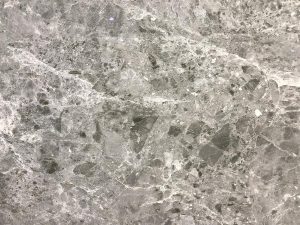
Which country makes the best porcelain tiles
the very initial question which comes to any ceramic tiles distributer is which country makes the best porcelain tile? China is now the largest manufacturer of ceramic/porcelain tiles in the world. China’s ceramic tile manufacturers have given more attention to intellectual property protection and imaginative designs in recent years, resulting in an inflow of new products.
Numerous internationally renowned designers are hired by top Chinese enterprises. This rising trend contributes to the creation of more appealing and competitive products. In the past decade, China’s ceramic tile production has expanded at a pace of 20 percent every year.
In December 2007, official Chinese figures indicate that total output surpassed 5 billion square meters. Domestic consumption is 4 billion square meters, exports are 600 million square meters, and inventory turnover is approximately 400 million square meters. China’s ceramic tile use per capita is around 2.7 square meters.
In recent years, China’s ceramic tile businesses have given increased attention to intellectual property protection and imaginative designs, resulting in an influx of new goods. Numerous internationally renowned designers are hired by top Chinese enterprises.
This rising trend contributes to the creation of more appealing and competitive products. There are a number of notable ceramic tile manufacturers strategically located in six ceramic production regions in China. Due to their high-quality products and distinctive designs, these well-known Chinese brands are gaining a foothold in the worldwide marketplace.
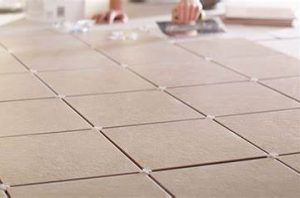
Floor tile manufacturers
the possibility of succeeding waves in floor or wall ceramic tile production manufacturers are projected to constrain market development. Due to rising demand for single-family house buildings and strengthening residential replacement in the country, ceramic tile demand in the United States is predicted to expand throughout the forecast period.
The standards of the US Green Construction Council have regulated the use of eco-friendly building materials, favorably boosting industry growth. Ceramic tiles are robust, stiff, eco-friendly materials that conform with green construction regulations, and are consequently gaining favor in flooring and walling applications.
The commercial availability of these goods in a range of colors, sizes, and textures has raised customer interest in high-end flooring applications. For tile decorating, the ceramic tile manufacturing sector is increasingly adopting digital inkjet printing technology.
In addition, major developments in print head design and ink composition are predicted to boost the market penetration of the aforementioned technology throughout the projection period. Principal industry participants are partnering with a range of service providers, including graphic design firms, to produce new designs for the manufacturing of more visually beautiful tiles.
Also included are vendors of end-of-line processing who finalize the final product with cutting, grinding, and lapping. The bulk of ceramic tiles is distributed through middlemen such as distributors, wholesalers, and big-box shops. In addition, distributors and retailers engage with construction firms, adhesive and glue suppliers for tile installation, architects, and designers to suit the demands of end-user consumers.
In addition to being impermeable, porcelain floor tiles are resistant to mold and germs, extending their longevity. In addition, the product’s chemical and stain resistance is projected to improve demand for the aforementioned tiles, which are increasingly utilized in retail malls, hotels, and other institutional buildings.
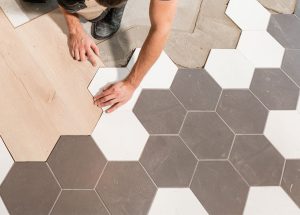
Premium porcelain tile company
a premium Ceramic and porcelain tile company is able to clarify ceramic tiles specifications in their production and application. Porcelain tiles are formed from finely crushed sand, whereas ceramic tile is created from clay. In addition to pressure and a very hot kiln, its manufacturing process involves both.
This results in an exceptionally thick and durable tile. Porous ceramic tile must be glazed to prevent moisture absorption, whereas porcelain tile absorbs less than 0.5% of its weight in water.
Here is an overview of how porcelain tiles are manufactured: There are various quantities of feldspar, silica sand, clay, and other minerals in porcelain tile compositions. They are dissolved in water. A spray dryer reduces extra moisture, resulting in the desired consistency. The tile is pressed from the slurry.
The tile is punched to the desired size and form using a punch. The tile is now referred to as greenware, which refers to unglazed and unfired tile. Before adding the design and colors with an inkjet printer, the tiles are dried. The tiles are then coated in a glaze for protection.
The porcelain tiles are heated to temperatures as high as 2,500 degrees Fahrenheit in a kiln. Porcelain tile’s grade is affected by the materials used in its manufacture, but the thickness of the tile has the greatest influence. There are a variety of applications for thin, grade 1 tiles, and they are not always of lesser quality than other classes.
For a high-traffic floor, you may want a thicker, more lasting tile, whereas a thinner, lighter porcelain tile is more suitable for wall installation. Grade 1 porcelain tile is the least durable and should be used exclusively on walls. It is inappropriate for floors and counters.
These tiles are great for kitchen backsplashes and bathroom walls because they maintain many of the benefits of more durable porcelain tile grades, including water and stain resistance, gorgeous patterns and colors, and simple maintenance. Spend some time exploring our website and contacting our sales agents in order to learn more about the porcelain tiles that we offer.
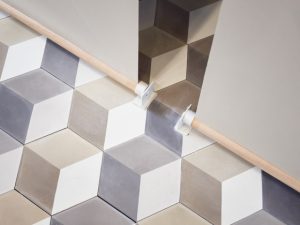
Companies that have invested time and resources investigating, creating, and polishing their very own techniques and operating procedures have been the most successful throughout the years.
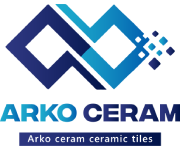
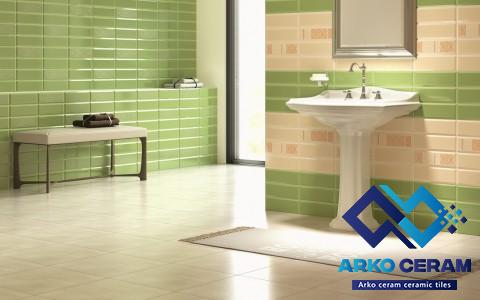
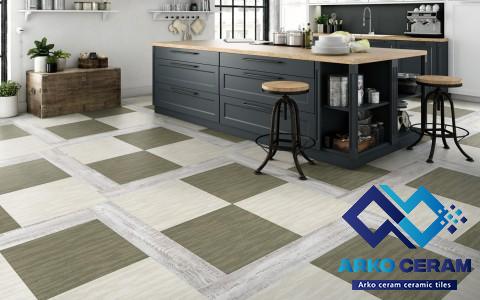
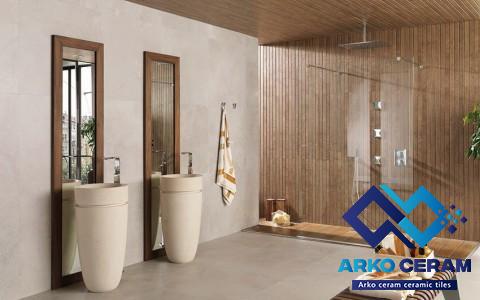
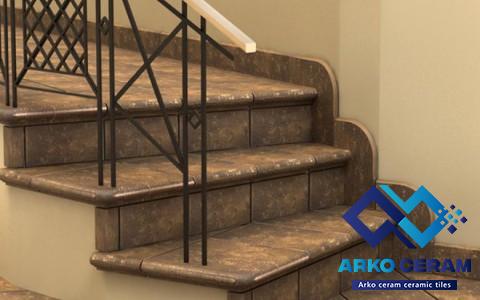
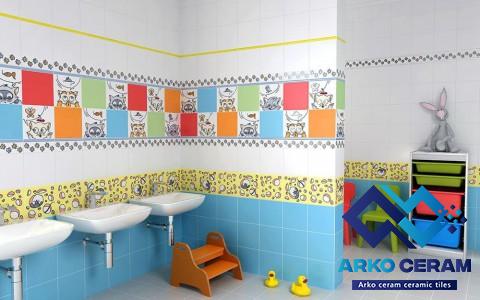
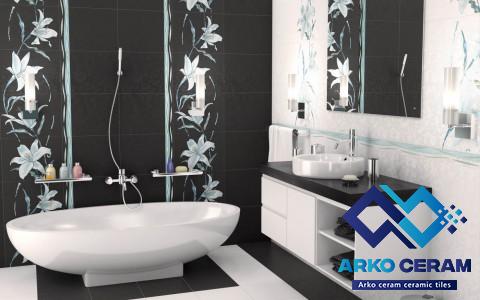
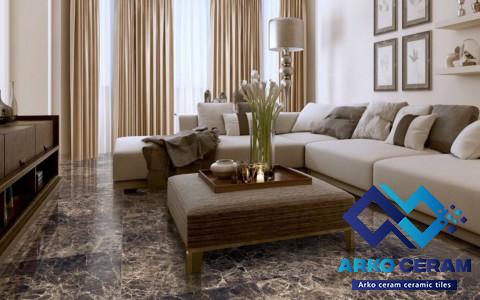
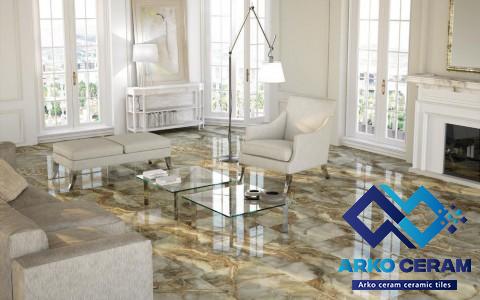
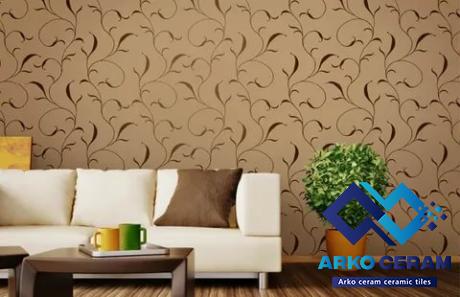
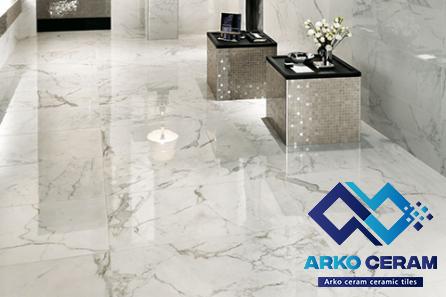
Your comment submitted.